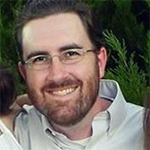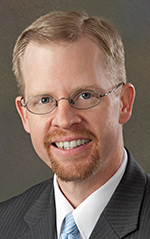Voices: May women know our churches are filled with ‘men on bicycles’
“You have heard it said, ‘Do not commit adultery,’ I say to you, everyone who looks at a woman with lust for her has already committed adultery with her in his heart.” (Matthew 5:27-28)
 Patrick Adair
Patrick Adair
I read some good news recently. I was looking up statistics and found out that one in six women have been victims of sexual assault. The only way such a horrific number can be considered good news is this: Ten years ago, when I began working in full-time ministry, the number was one in four.
One in four women were victims of some kind of sexual assault, and the statistic is down now to one in six. The number may, of course, actually be higher than that, because sexual assault is one of the most under-reported crimes, but the reported number of assaults, at least, has declined. To one in six women.
 Guilty get away with it
Guilty get away with it
I want to tell you something, and I want to be perfectly clear. If one in six women are victims of sexual assault, it is not because one in six men are sexual assaulters. It is because we let the men who are guilty of sexual assault get away with it. I repeat: If one in six women are victims of sexual assault, it is not because one out of every six men are potential sexual assaulters. It is because we look the other way about sexual assault.
We choose to look the other way because it is not the strangers who commit sexual assault that we have to deal with. It is the men we know. We look the other way because it would cost us personally, professionally or politically to acknowledge the guilt of the men who do commit sexual assault. Instead, we excuse the men and blame the women, or we simply ignore them and re-victimize the victims by our apathy.
Let me be clear about two things.
First, I am not discounting false reports of sexual assault. The women who claim such things for whatever reason certainly do no favors for genuine victims, but the number of false accusations is insignificant compared to the number of actual assaults. One in six. The overwhelming weight of evidence is in favor of women telling the truth.
Second, I also am not denying men also are victims of sexual assault. I is very likely sexual assault of men is a much higher than what is reported because there is even more stigma for men to report it. It is also true, however, that men are much more likely to be sexually assaulted by other men than by women.
Those are the first two objections I can anticipate to the statement that we look the other way on sexual assault of women: False claims do exist, and men also can be victims. Perhaps other caveats might be thrown out.
However, consider this: There is not one single man reading this who has mace on his keychain, is there? Men, our fathers didn’t teach us to walk through a dark parking lot with our keys stuck between our knuckles in case somebody attacked us on the way to our car, did they?
Jesus expects …
There is a reason Jesus gives his command against lust to men. He expected the male disciples of his day to obey his command, and he expects the same from us. But the truth is we simply do not insist on his standard for our society. Instead, we excuse and hem and haw. We easily give way to “lesser” sins that compound together to create an environment in which a woman can expect to be leered at, spoken about and treated and as object, and attacked.
I don’t want any part of that. I don’t want any part of a society that condones and looks the other way and approves of those kinds of behaviors. This means, for me, I obviously won’t commit sexual assault, but it also means I need to expel from my life any of the “harmless” things that contribute to the environment in which women can expect all variety of inhumane treatment, from inappropriate jokes to cat-calls to rape. So, there must no place in my life to be part of a group of men talking, “rating” the women around us, excusing sexual harassment as “joking” or bragging about sexual exploits. Some might call such behavior “harmless,” but our Lord does not.
We are part of a society in which watching pornography is considered “harmless,” but our Lord does not. Pornography, by the way, is addictive. Addiction works by rewiring your brain to continue to seek more and more and more of whatever creates the high. You never will be satisfied, and you always will escalate. Pornography is no exception.
Someone else’s body
Have you ever considered, men, the similarities between watching pornography and sexual assault? In both cases, someone else’s body is used for one’s pleasure without the other’s consent. One could object that someone who appears in a pornographic film is consenting. Is that true, though? Consenting to each and every use of the image of their body for someone else’s pleasure, for anonymous strangers’ pleasure? No one who is part of the body of Christ should want any part of using someone else’s body in that way.
If you have found yourself struggling with the addiction of pornography, there is hope. Seek accountability for this addiction. You need to treat it like an addiction, and you need to seek sobriety from it. Seek out Christian counsel and fellow believers who will pray for you and support your quest for purity of thought and action. Celebrate your milestones! “I have gone this long without indulging in this behavior.”
Also, seek radical empathy. Empathize with those you have been accustomed to treating as objects. Say to yourself when you see a woman or a man who has signed on to be part of a pornographic film: “What sort of things have to happen in a person’s life for them to think this is OK? Or that this is good?” Pray for them, and be guided by God’s love instead of your libido. Seek radical empathy with those you are used to looking at as objects.
Heroes on bicycles
Last summer, the victim of sexual assault that garnered national headlines published a letter. The young woman who wrote it was sexually assaulted at Stanford University. Her assaulter received a very light sentence, which was the main reason for such widespread coverage of the case. The anonymous young woman wrote a letter she read in court to her assaulter after his very light sentence had been passed, and in which she detailed the trauma of the assault and of the ensuing trial.
It was a graphic letter, because what happened to her was graphic. She mentioned she was unconscious during her assault, and so only discovered the facts of the case from the police reports. While she was being assaulted behind an outdoor dumpster, two Stanford graduate students on bicycles rode by, saw what was happening and intervened. Her attacker ran away when they approached, and the men tackled him and stopped him. They called 911.
Near the end of her letter, she thanked several people, including the two men on bicycles. She did not even know their names. All she knew was they acted. In her letter, she wrote, “I sleep with two bicycles that I drew taped above my bed to remind myself that there are heroes in this story.”
I don’t want any part of one in six. I do not want to contribute in any way, no matter how “small,” how “harmless” or how “excusable.” I do not want any part.
I want to be one of the men on the bicycles. I want every woman, from my daughters, the women in our church, my female colleagues in ministry, every woman to be able to say the men of their churches are the men on bicycles. I challenge every man among us, young and old, to be and to hold one another accountable to be that kind of man.
Patrick Adair is pastor of Central Baptist Church in Marshall.









